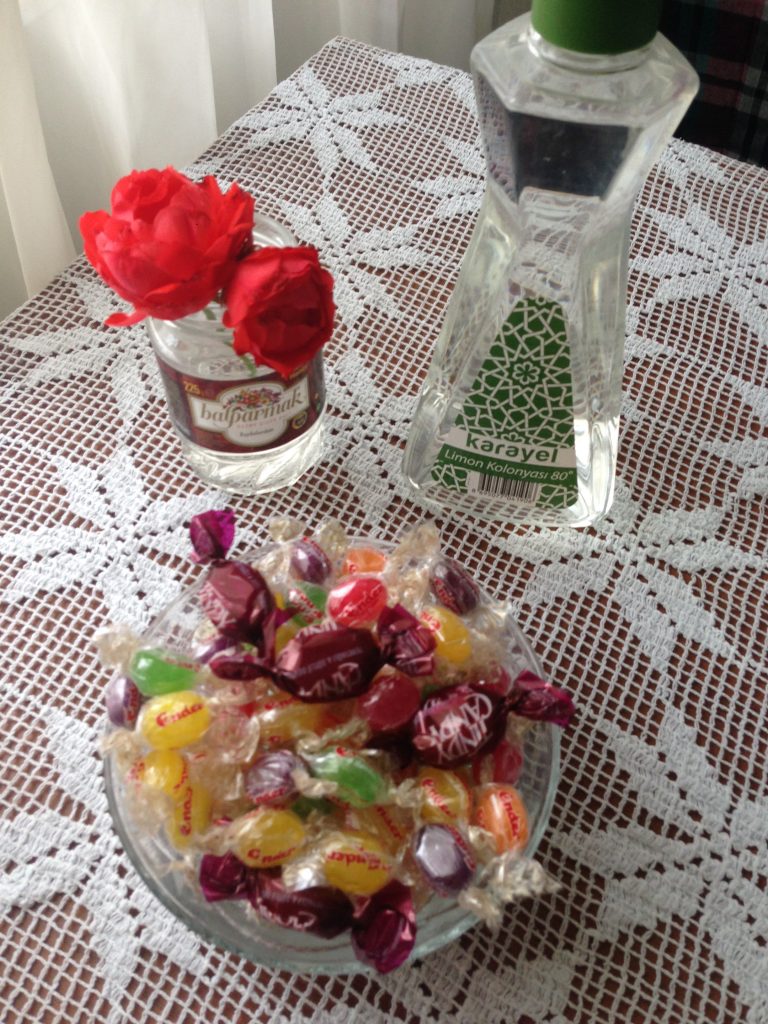Life in Turkey: Seker Bayram and Ramazan
This post may contain affiliate links, meaning I receive commissions for purchases made through those links at no cost to you. Please read my full disclosure for more information.
Table of Contents
Each year when I look back at this post, it reminds me of the years that I’ve spent in Turkey during Ramazan. This year, in 2024, is quite different from the first year when I’d just arrived! Back then in 2015, I was living in Cappadocia in a small village called Goreme. You may know it for the hot air balloons and fairy chimneys which have made it a popular tourist destination in the age of the social media influencer. I loved living there because I really got to experience village life and traditions like Ramazan and the bayram that follows it, Seker Bayram. You can read my original post at the bottom of this one.
When is Ramazan and Seker Bayram in 2024?
This year, Ramazan began on March 11, 2024 and lasted through April 9th. The feast that follows (Seker Bayram) lasts three days, April 10-12.
When is Ramazan and Seker Bayram in 2025?
For 2025, Ramazan will last from March 1-29, 2025 and Seker Bayram will be March 30-April 1, 2025.
This year it’s perfect timing for kicking off the Istanbul Tulip Festival, which is held annually in April! Spring is such a lovely season in Turkey. =)
What is Ramazan (Ramadan) like in Turkey?
I think the experience of Ramazan in Turkiye is very different depending on what part of the country you will be visiting. Staying with family or friends in village, you’ll have a much different experience than if you’re staying at a touristic resort area. Your experience of Ramadan in Istanbul may even be very different depending on which neighborhood you visit or stay in.
Keep in mind that even in very conservative areas, not everyone fasts during Ramadan. You will find restaurants and even bars open as usual. I personally try to be mindful of not eating or drinking in public areas (I’ll eat inside a restaurant instead of sitting out at the seaside or having a picnic, for example) but many, if not most, people will go on about life just the same as any other time of the year. It is a personal choice, even for those who do observe the fast.
What is Ramazan like in Istanbul?
Now that I live in Istanbul, it’s a very different experience from the Ramadan evenings in the village. If I hadn’t known about it before coming to Istanbul, I wonder if I even would have noticed the significance to those around me. While you definitely do see signs urging charity and it is hard to miss the large communal tables and tents set up around the city for iftar, I have never been invited to an iftar with neighbors in Istanbul. In Cappadocia, we were visiting a different friend or family member each night, or hosting iftar ourselves. (Even though I wasn’t fasting!)
One thing that I was surprised to see is that they still have Ramadan drummers in many Istanbul neighborhoods, that come through around 3am to wake up those who will eat before sunrise. I typically hear them the first night or two, but sleep through it the rest of the time. It helps that this year Ramadan is during cooler weather so my windows are closed at night!
In 2017, some friends and I decided to take a picnic of our own and we laid out a blanket between the Hagia Sophia and Sultanahmet to have our dinner while families around us were breaking their fast for iftar. It was such a beautiful moment to be in such a historic area during iftar! I definitely recommend visiting an area with a community tent set up during Ramadan, like Sultanahmet, and sticking around for the entertainment afterward. You may be able to catch shadow puppet shows like in Ottoman times!
On February 6, 2023 twin earthquakes devastated large parts of Southeastern Turkiye & Northern Syria.
More than 50,000 were killed and months later, the damage is still severe.
Looking back: My experience of Ramazan in Goreme (2016)
Today was a bit of coincidence as there are major holidays happening in both my homeland and adopted home. So while I’m watching 4th of July beach parties, BBQs and red, white, and blue fireworks displays back in the states, here in Turkey they’re getting ready to celebrate three days of Seker Bayram, which marks the end of the holy month of Ramazan.
Ramazan (known as Ramadan outside of Turkey) is the holiest month in the Muslim calendar. During this time, those observing Ramazan will abstain from vices like swearing, alcohol, sex, and arguing and focus on being kind to others, improving the community and performing acts of charity. Families and friends are united and quarrels are resolved. During the 30 days of Ramazan, Muslims traditionally fast from sunrise to sunset. This includes not just food but anything passing your lips. No smoking, no chewing gum, no brushing your teeth, not even a sip of water!
The dates change each year based on the lunar Islamic calendar, moving approximately 11 days earlier each year, and this year Ramazan began June 5 and lasts until July 4. So most of the people living here in Goreme (including my boyfriend and his family) are fasting for nearly 14 daylight hours each day, and this during the heat of the summer!
As you can imagine, it’s quite difficult. There are exceptions of course, for the elderly, children and those who are sick or traveling. But a majority of people keep the fast as a matter of affirming their faith, at least this one month of the year. Here in Cappadocia, this includes staff at hotels and shops dealing with tourists and servers and chefs in restaurants who are handling food all day but not eating themselves. So if you’re visiting Turkey during Ramazan, it’s a good idea to keep this in mind and be extra kind to those who are waiting on you!
Last year I chose to fast for two days to support my friends here and to understand a bit more how challenging it was. Let me say that not eating is definitely not the hardest part – it’s not being able to drink anything! No morning cup of coffee, no water to cool you off during the day. It was really tough even for two days. At that time I didn’t even realize I was “breaking the rules” by chewing gum and brushing my teeth… Turks also are notorious cigarette smokers, so you can imagine that going cold turkey for a month makes people quite grumpy.
It’s also best to avoid the roads in the half an hour or so before iftar, the evening meal to break the fast, as people rush home to take their place at the table with family and friends. As soon as the azan sounds from the mosque, everyone has their hands on their glass of water and its traditional to have a date or olive as the first bite of food to break your fast. Special round bread called ramazan pide is eaten, dipped in tahini mixed with pekmez (grape molasses). Corba (soup) is the first in many courses of the feast enjoyed together after the sun sets.
Many people will either stay up all night (if they’re lucky enough to have a job that allows them some sleep during the day) visiting with friends over tea or Turkish coffee and desserts, or they will wake up very early in the morning for a big breakfast called sahur, to sustain them until the next night’s iftar. Each neighborhood has Ramazan drummers who come through in the wee hours of the morning to wake you up for sahur. And yes, it wakes me up too! That’s one part of the end of Ramazan that I definitely look forward to – the return of uninterrupted nights of sleep!!

Today is the last day of fasting for Muslims in Turkey and in the afternoon everyone will begin arife preparations for Seker Bayram (Sugar Feast), which officially begins tomorrow and lasts for three days of religious and government holiday. Women will be cleaning their homes and getting them ready for visits from friends, neighbors and family and it’s customary to have sweets like baklava or chocolate to offer guests. Children come through the neighborhood to kiss the hands of their elders as a show of respect and in exchange receive sweets and sometimes small amounts of money – it’s sort of like Halloween without the costumes. And on the topic of costume, nearly everyone purchases new shoes or a new outfit to wear during Seker Bayram as well. It’s lovely to see everyone walking around dressed up for the occasion!
Wishing everyone a Happy 4th of July and/or Iyi Bayramlar, no matter where you are in this world… I hope your holidays are filled with love, laughter and lots of good food. The world needs more love, and less hate, now more than ever.

